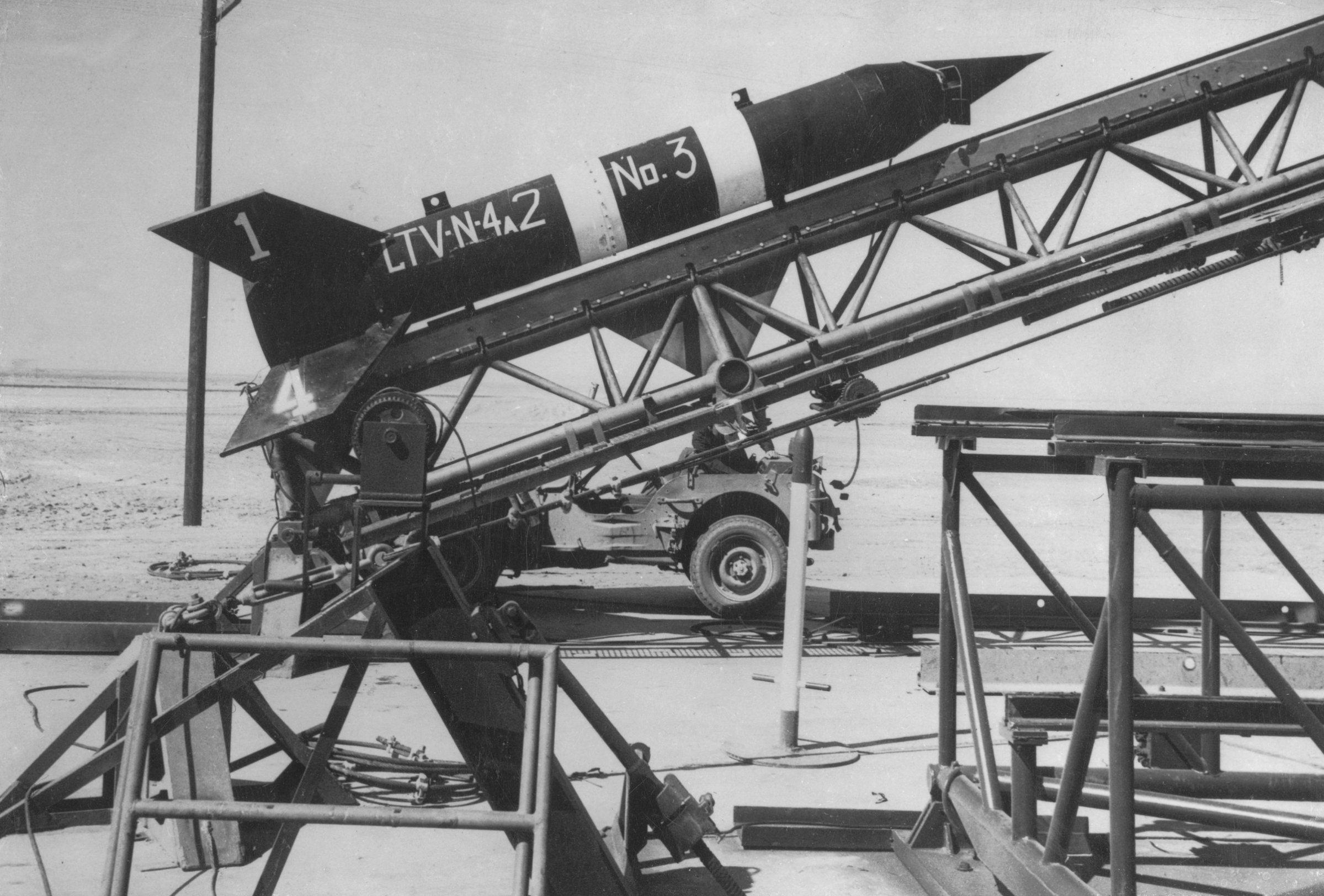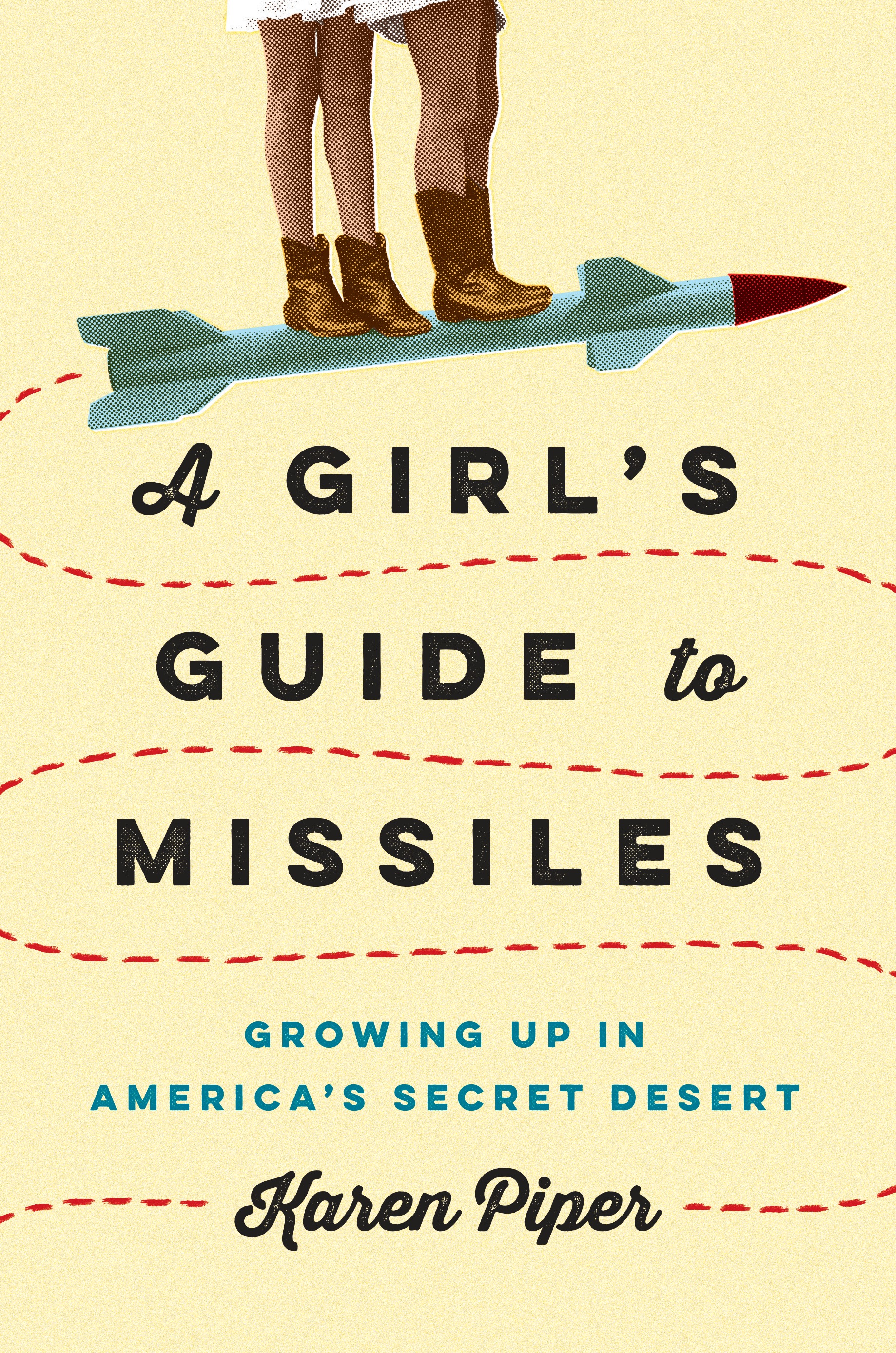
I grew up at China Lake Naval Weapons Center and worked there for years, but once my badge was taken away, I couldn’t go back. I wasn’t able to enter the base, much less gain access to their historical files. Only the “official” Navy historians could. This made it difficult to complete the task I had set for myself: writing about growing up at a little-known weapons development center in California’s Mojave Desert, now part of NAVAIR, where my parents both worked. Partly for this reason, the book took ten years to write.
The other part was fear.
First, I had to reconstruct a world that in truth I knew little about even though I had lived in it. Of course, understanding what happened to you as a child is always difficult. You might remember vividly what a leaf looks like but not understand what a forest is. And at a weapons center, there is the added complexity of not being allowed to wander in the forest at all. Memories have to be declassified first.
And so, my research consisted of piecing together a life through newspaper articles, interviews, my parents’ files and official Navy histories. I grew exhausted from reading slick coffee-table photo books about the destructive yet ever-so-beautiful power of missiles. Why do the missiles always look like they’ve just been polished? I would inevitably ask myself.
China Lake’s newspaper, called The Rocketeer, is completely digitized, so I started there. While most of its stories are about the arrival of Admirals on base or the bestowal of awards, there were a few gems. For instance, there was the time that the base had to shut down because of a caterpillar infestation—that went in my book. Tales of burro round-ups on the base brought back memories of nuzzling a baby burro nose as a child.
Next I read the “official” histories of China Lake, 600-page tomes written by Navy historians who were given access to the base files. In the years during which I was waiting for new volumes to be released, I happened to meet the author of the third volume—Elizabeth Babcock, who wrote Magnificent Mavericks—when we were both touring an old ghost town at Cerro Gordo mines. “When will your book be out?” I asked as we skirted a rabbitbrush that someone warned had a rattler inside. “You tell me,” she replied, explaining that the Navy had to vet it and remove sensitive information first.
Then I discovered that some base files had been relocated to the National Archives in Riverside, Calif., after being declassified, a process that can take over 30 years. Inside a squat brown government building surrounded by the dried-up grass hills that pass for a cattle pastures in Southern California, there were school-sized desks and a serious young man with square black glasses who handed me a “menu” of choices before returning to his desk at the front of the room. I requested everything on China Lake and, obediently, this young man wheeled out library shelves stacked with files, one by one.
In most of the files were engineering notes that read like hieroglyphics to me, and the acronyms the Navy loves so much. In the files marked “IR” — that’s “Independent Research,” not “Infrared Radiation,” as I’d initially thought — there were tales of scientists who built deep sea vehicles powered with salt, “inflatable igloos” and “hidden knowledge detectors.” Each invention was listed in a square box with a sketch of the invention and a description beneath that, as if you could buy an inflatable igloo in an old catalogue.
Frustratingly, the China Lake files stopped right around the time we lived on the base.
Finally, I relied upon whistleblowers and retirees who were willing to speak. One of these men was Burrell Hays, who talked to me about his fears of corruption overtaking the weapons industry, largely due to its gradual privatization. “The contractors hold the weapons hostages today,” he warned, explaining that we had to pay whatever they asked to gain access to our own weapons. It was like listening Dwight D. Eisenhower warning about the rise of the “military industrial complex” all over again.
By the end, my book project had ended up looking a lot less like a childhood memoir and more like a work of history or journalism about a secret subject — which means that the process of writing it offers lessons that reach far beyond the walls of the base.
“Do no harm” became my guiding motto, though the answers were not always easy. While I knew my story was mine to tell, there was still a voice in my head saying “loose lips sink ships.” I wrote in secret, afraid to reveal anything for years. I wrestled with what was mine or theirs to tell. Did I say too much? Or not enough? Burrell Hays spoke hyperbolically of “firing squads” for people who blabbed. This was hard to forget, though I also knew that asking the Navy to vet my book would keep it held it up for another ten years. I chose not to.
Journalists face similar conundrums all the time when working with difficult sources, and so do whistle-blowers. For instance, ex-Cambridge Analytica employee Christopher Wylie reached out to The Guardian when he blew the whistle. He has since become crucial to Robert Mueller’s investigation into Russian interference in the 2016 election. Christopher Steele held meetings with multiple journalists before ultimately handing over his notes. This quiet, exhaustive, and collaborative process of slowly unraveling the truth is quite different than a Julian Assange-style “data-dump,” which by its very nature is the antithesis of ethical deliberation over each and every word printed—though he calls himself a “journalist,” too.
Wherever I searched for my history in those ten years, I encountered the voice of the U.S. Department of Defense—a booming, authoritative voice that might have easily overtaken my own small story, a child’s view of a leaf in the forest. What made me confident enough to write, in the face of that, was simply the overwhelming feeling of China Lake as “home.” Yes, it was a home where sometimes Uncle Sam would stop by. He was family, after all. But he would leave, and then we would be left alone in a world of old school clocks and grey stucco duplexes, a world with no fashion sense and lots of bobcats. It was a slow, quiet, baking world where the missiles and planes were old and greasy while the creosote bushes shone like silver.
I stayed focused on that world, on home — and hoped I kept that little girl alive.

Karen Piper is the author of A Girl’s Guide to Missiles: Growing Up in America’s Secret Desert, available now from Viking
More Must-Reads From TIME
- Dua Lipa Manifested All of This
- Exclusive: Google Workers Revolt Over $1.2 Billion Contract With Israel
- Stop Looking for Your Forever Home
- The Sympathizer Counters 50 Years of Hollywood Vietnam War Narratives
- The Bliss of Seeing the Eclipse From Cleveland
- Hormonal Birth Control Doesn’t Deserve Its Bad Reputation
- The Best TV Shows to Watch on Peacock
- Want Weekly Recs on What to Watch, Read, and More? Sign Up for Worth Your Time
Contact us at letters@time.com